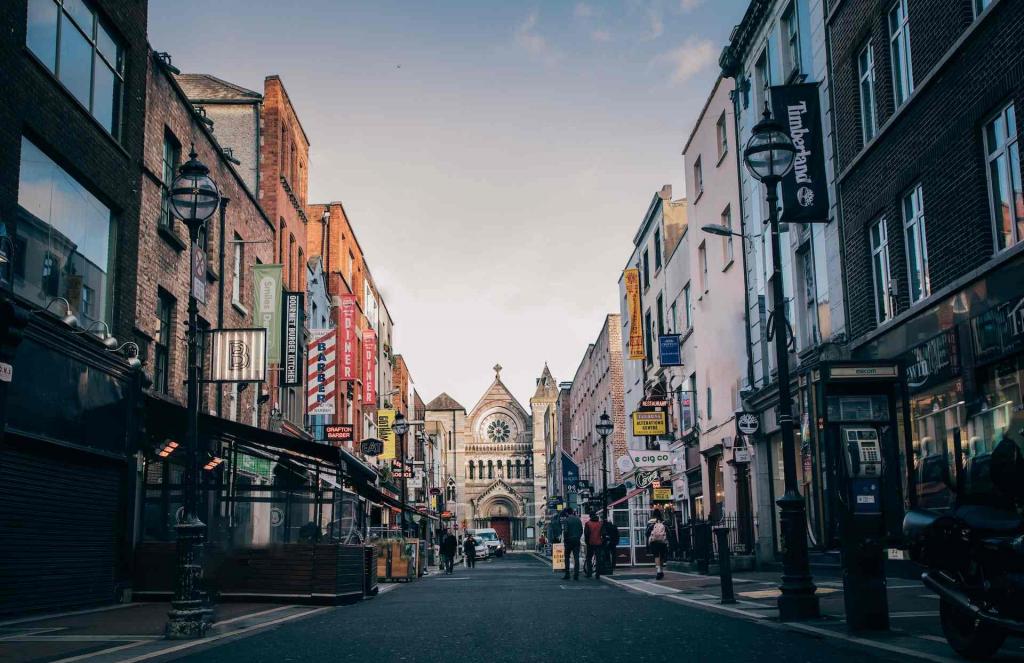Thessaloniki gets ready for its metro launch in November
The underground rapid transit lines have been under construction for almost two decades due to various project delays
 TheMayor.EU logo
TheMayor.EU logo 
UBI for the arts is supposed to help artists develop their portfolio and take more risks, while having stable financial backing , Source: Gregory Dalleau / Unsplash
Minister for Culture, Catherine Martin, said that the Basic Income for the Arts project was a "once-in-a-generation opportunity" for the sector
Last week, Irish authorities announced the launch of the vanguard pilot universal basic income programme for artists and the arts sector. During the programme, 2,000 professionals will receive 325 euros per week for a period of three years with no strings attached.
Essentially, this means that the government has offered its unconditional support in what, they claim, is a strong move towards a recovery for the sector after the COVID pandemic. This means that during that three-year period, UBI recipients will be able to earn additional income.
Additionally, the high cost of living and the housing crisis have been heavy burdens on the artists even before lockdowns hit the country in 2020. Both factors have contributed to a continuous brain drain of young professionals and of the industry in general.
Over 9,000 people applied for the Basic Income for Artists and authorities deemed around 8,200 of them as eligible. The 2,000 recipients were then picked out at random, with the aim of finding the right balance of representation between the stages of their careers, age, ethnicity and field of work.
The final group consists of 707 visual artists, 584 musicians, 204 artists working in film, 184 writers, 173 actors and artists working in theatre, 32 dancers and choreographers, 13 circus artists and 10 architects. Importantly, around 9% of people selected identify as creative arts workers, rather than artists, while a further 7% were recent graduates.
Furthermore, the UBI for artists is classified as taxable income, but, according to an official statement, people who get it can receive additional pay. Authorities have said that the idea behind the pilot project is to offer people some stability and reliability, as well as the freedom to either build up their portfolio or attempt riskier projects.
According to a report by the Theatre Forum from 2019, average weekly earnings for people in the arts sector were around two-thirds lower than other sectors in the economy. The economy undervalued the production of local creators and according to a statement by Clare Duignan, Chair of the Arts and Culture Recovery Taskforce, the pandemic revealed their true potential and also their vulnerability.
Minister for Tourism, Culture, Arts, Catherine Martin, was quoted in a press statement, explaining that the pandemic clearly showed that each and every person needed the arts to get through hard times.
She added that through art, society will be able to make emotional sense of the impact of the last two years and shape the future to come. This, she claimed, was a once-in-a-generation opportunity to change the landscape of the arts sector in Ireland.
However, authorities are quick to point out that the jury is still out on whether the policy will continue. They emphasise the fact that this is a pilot project and it is very much uncertain what the final conditions of the policy will be, even if it is widely adopted.
To assess the situation, the government has also picked 1,000 people who were eligible to receive the UBI but did not. They will serve as a control group and during the three years of the programme, will help gauge the impact of the policy on the successful recipients.

The underground rapid transit lines have been under construction for almost two decades due to various project delays

Now you can get your wine in Talence by paying directly in Bitcoin

That’s because the state has to spend money on updating the railway infrastructure rather than subsidizing the cost of the popular pass

Rethinking renewable energy sources for the urban landscape

The examples, compiled by Beyond Fossil Fuels, can inform and inspire communities and entrepreneurs that still feel trepidation at the prospect of energy transition

Now you can get your wine in Talence by paying directly in Bitcoin

The 10th European Conference on Sustainable Cities and Towns (ESCT) sets the stage for stronger cooperation between the EU, national and local level to fast track Europe's transition to climate neutrality.

At least, that’s the promise made by the mayor of Paris, Anne Hidalgo

The underground rapid transit lines have been under construction for almost two decades due to various project delays

At least, that’s the promise made by the mayor of Paris, Anne Hidalgo

Hostal de Pinós is located in the geographical centre of the autonomous region

Despite its church-y name, the district has long been known as the hangout spot for the artsy crowds

Urban dwellers across the EU are having a say in making their surroundings friendlier to people and the environment.

Forests in the EU can help green the European construction industry and bolster a continent-wide push for architectural improvements.

Apply by 10 November and do your part for the transformation of European public spaces

An interview with the Mayor of a Polish city that seeks to reinvent itself

An interview with the newly elected ICLEI President and Mayor of Malmö

A conversation with the Mayor of Lisbon about the spirit and dimensions of innovation present in the Portuguese capital














